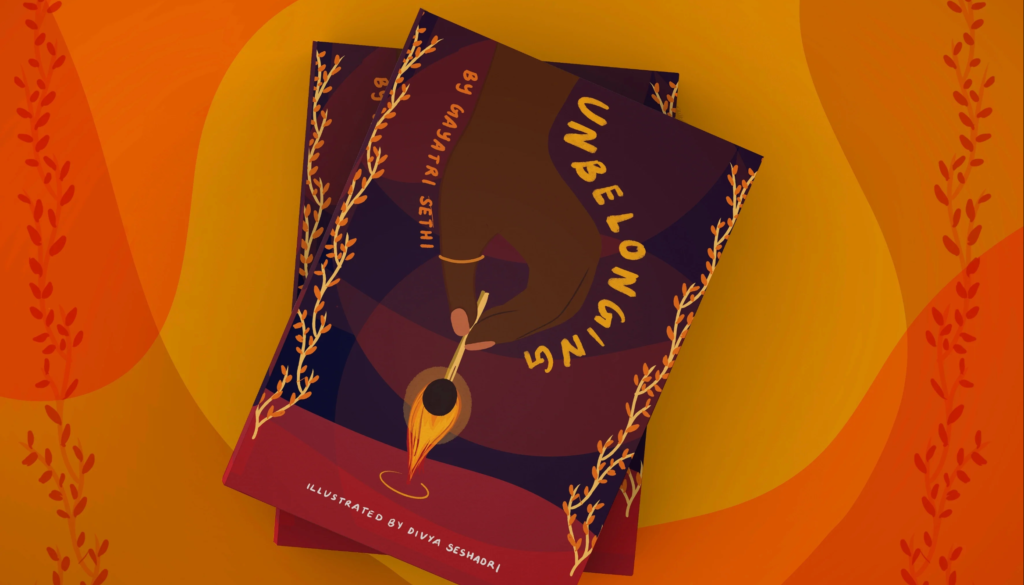How Unbelonging Changed my Perspective on the World
Dr. Gayatri Sethi’s book, Unbelonging, opened my eyes to the experiences of Indian families living on the African continent. The non-fiction book is written in a poetic format and interwoven with exercises to help readers with their own self-reflection, is one of the most unique book styles I have seen. It is split into three sections, Desi-ish, African-ish, and American-ish. Through the sections it uncovers her journey feeling a sense of belonging as a Punjabi woman born in Tanzania, growing up with her disabled family members, to her journey to the United States, and the ways she has grown and embraces radical love.
The story of her life allowed me to experience a complex and multi-layered narrative that often is lost in mainstream media. It deeply touched me because I often felt like I had no one to relate to because my narrative seemed more complex than what was portrayed about immigrants in the mainstream media. Her story was one of the first to touch me on a deep and personal level.
In addition to the narrative, the book was also powerful in its ability to strengthen my understanding of terms such as lateral violence, the anger and rage directed towards members within a marginalized or oppressed community. Her use of the term helped me better understand how lateral violence shows up in everyday life and can contribute to this feeling of loneliness that I and many of my other peers may have.
Lastly, one of the major themes of the book was around understanding and overcoming Anti-Blackness within the South Asian community. This was one of the first times that I had ever seen an author of Punjabi descent discuss Anti-Blackness, talk about this openly and share the challenges that she had personally faced. Her experiences gave me a lot of courage and helped me feel bolder about further discussing these issues within my own family and community. I am deeply grateful to her for sharing her knowledge and wisdom throughout the book.
As a result of this book, I now look at the world differently. Prior to this, because of my own ignorance, I had largely been ignorant of the experiences of South Asians living on the African continent. Because of her work, I was able to expand my awareness and deepen my understanding of the South Asian experience. In addition, her discussion about her disabled family members also deeply touched me and allowed me to feel a deep connection and reflect on my own personal experiences in a way I had never done before.
I would highly recommend this book if you are looking for a complex multi-layered narrative that challenges you to reflect deeply on your own experiences, I would highly recommend this book. It’s definitely worth exploring.

